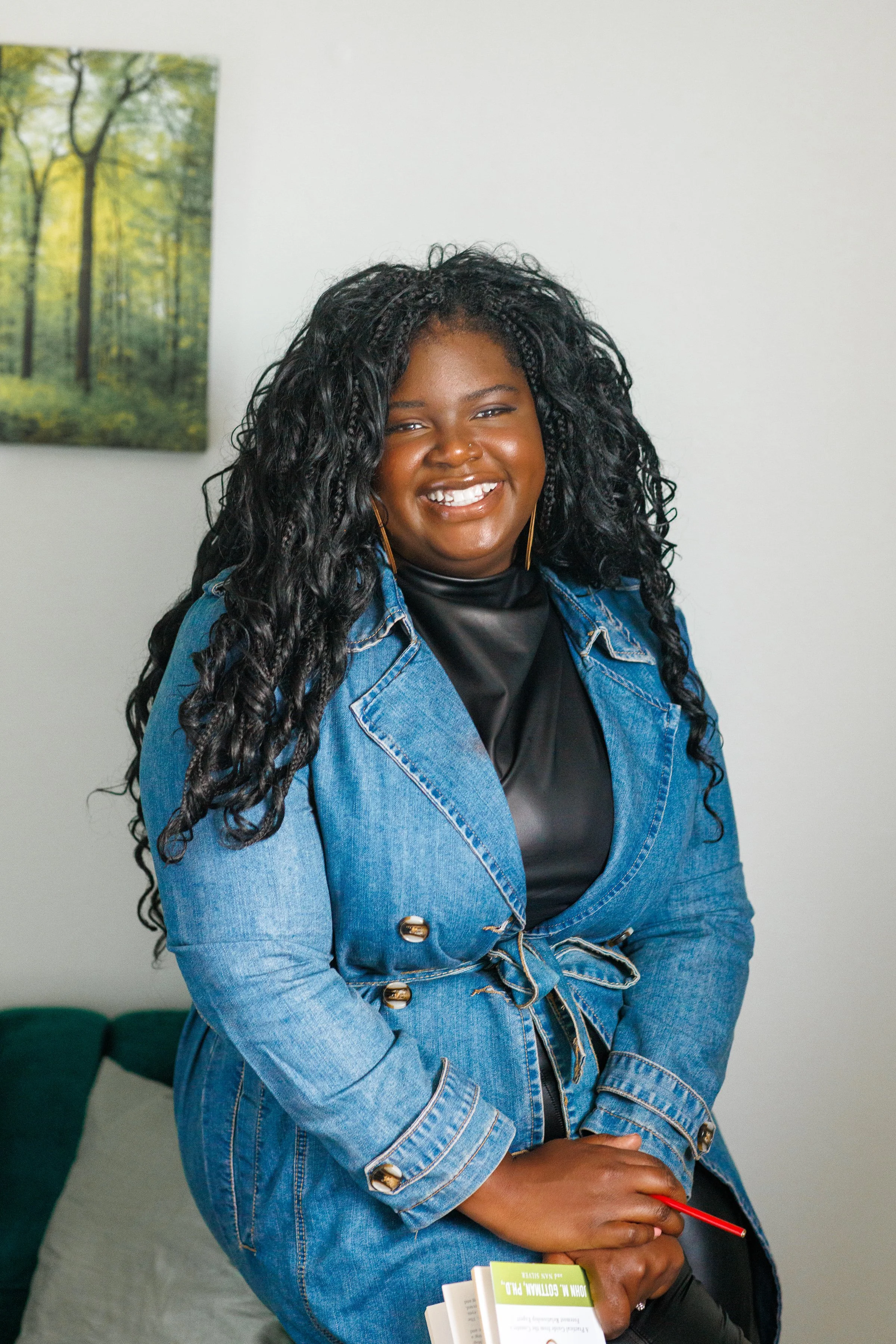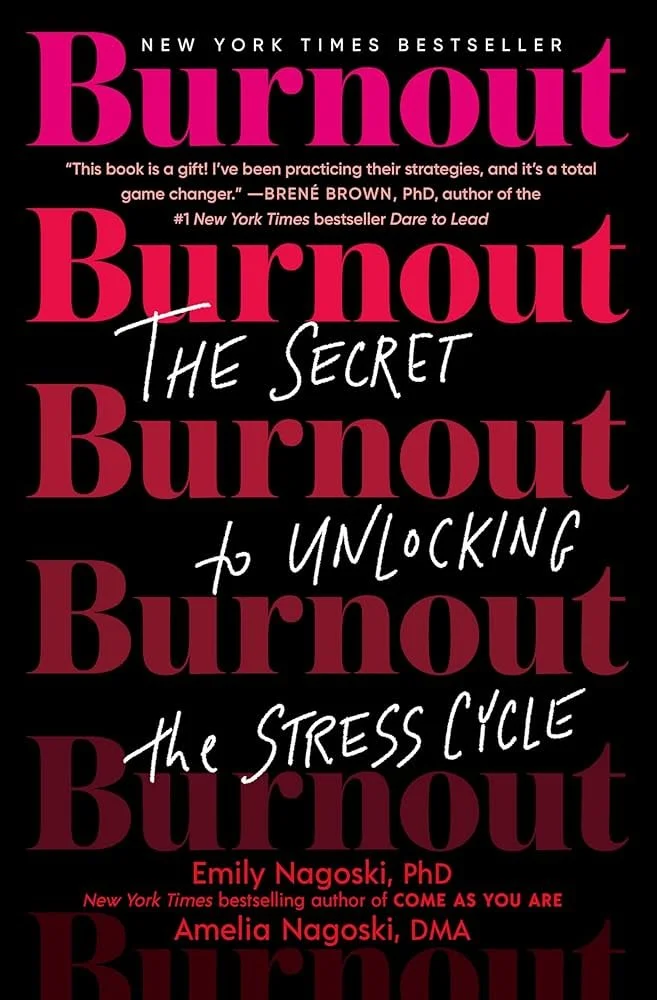Rest is Resistance: How Burnout Affects Women of Color
By Santasha Wright-Comer, LMSW
"You are going to have to work harder than everyone else, because of who you are."
This script has been running in the background of my mind for as long as I can remember. Every time I try to take a break, every time I want to slow down, it plays again—like a stubborn soundtrack I didn’t choose. I downloaded it sometime around elementary school, updated over the years by a well-meaning family, by teachers who wanted me to “prepare for the real world,” and by the very real experiences of systemic racism.
Don’t get me wrong, my family and teachers weren’t trying to harm me. They armed us with that script because they knew the world wouldn’t always be kind, fair, or equitable. They wanted us to be prepared for the biases, the gatekeeping, the generational gaslighting that can make it feel like we have to work twice as hard to get half as far. That warning was meant to be protection.
But what I didn’t realize then is that sometimes protection can also be a prison.
Over time, that internalized mantra became a performance I felt I couldn’t stop. Even in moments when my body was crying out for rest, my mind insisted I couldn’t afford to slow down. Rest felt like weakness. Breaks felt like slipping backward. And, deep down, there was a fear that if I stopped, I’d lose everything I’d worked for and disappoint those who made sacrifices for me.
The Anatomy of Burnout
Emily and Amelia Nagoski define burnout in their book Burnout: The Secret to Unlocking the Stress Cycle as emotional exhaustion, depersonalization, and a decreased sense of personal accomplishment. That last part? It’s often the loudest for me as imposter syndrome whispering in my ear, even after a win.
Anyone can experience burnout, but the weight is heavier for women because of layered societal expectations: to perform, to nurture, to excel, and to look good while doing it. For women of color, the load can be heavier still. We don’t just carry personal and professional pressures; we also carry the weight of representation, the constant need to disprove harmful stereotypes, and the unspoken demand to be both exceptional and unbreakable.
The “strong Black woman” trope tells us we must endure anything without complaint. The “model minority” myth sets impossible standards for other communities of color, erasing individual struggles and differences. And hustle culture — that endless grind for productivity — convinces us our worth is directly tied to how much we produce.
It’s exhausting and unsustainable.
How Burnout Shows Up in the Body
Burnout doesn’t just live in your calendar or your inbox — it moves into your body like an unwelcome tenant:
Fatigue that lingers no matter how much sleep you get
Frequent colds, flu, or infections
Digestive issues and stomach pain
Tension headaches or migraines
Mood swings, irritability, or emotional numbness
Overstimulation and mental fog
The “Sunday Blues” creeping in by Saturday night
When your body whispers, “I’m tired,” it’s a warning. When it starts shouting, in the form of illness, injury, or breakdown, it’s an ultimatum: SIT THE FUCK DOWN, OR I WILL MAKE YOU. And honestly? Our bodies mean it, respectfully.
The Problem with “Vacation as Rest”
A vacation is lovely. It’s often necessary, but if you return from a week away only to throw yourself right back into the same patterns: skipping lunch, answering emails late at night, ignoring your body’s signals. You’ve just taken a temporary detour before heading back into the storm.
Real rest is not just an escape, it’s a rhythm. It’s integrated into your days, weeks, and months. It’s knowing when to push and when to pause, without guilt.
Rest as Resistance
This is where the idea of rest as resistance comes in. For women of color, rest is more than self-care, it’s a refusal to be consumed by systems that profit from our exhaustion. It’s an act of reclaiming time, energy, and wholeness in a world that often tries to take them from us.
Rest says: I am more than my productivity.
Rest says: I deserve to exist without proving my worth.
Rest says: My body is mine, not a machine for someone else’s benefit.
In this sense, rest is deeply political. It disrupts the cycle of overwork and depletion that keeps marginalized communities from thriving.
What Rest Can Look Like
Rest doesn’t have to mean sleeping the entire day away — although if you need that, take it. It can be:
A 30-minute nap in the middle of the day, unapologetically
PUTTING THE PHONE DOWN and letting unanswered messages wait
Sitting in your car at lunch to enjoy silence
Meditating, journaling, or listening to music that grounds you
Walking in nature without headphones, letting yourself simply be
Saying “no” to opportunities that drain more than they give
Practicing “quiet quitting” of unnecessary overcommitments
Scheduling nothing into a weekend, just to reclaim unstructured time
The point isn’t to rest perfectly — it’s to normalize it as a daily practice, not an emergency measure.
Healing from Hustle Culture
Breaking free from hustle culture takes unlearning. It means questioning the narratives we’ve absorbed about worth, success, and survival. It means understanding that you can be ambitious and still protect your well-being. That rest doesn’t erase your accomplishments — it sustains them.
And it means redefining what success looks like. Maybe it’s no longer the packed schedule, the glowing performance reviews, the “I can do it all” badge. Maybe success is waking up without an alarm sometimes. It’s spending time with loved ones without checking your phone. It’s feeling present in your own life.
Building a Rhythm of Rest
If you’ve been wired for constant motion, rest will feel uncomfortable at first. You might feel guilty, restless, or even anxious. That’s okay — that’s just your old programming reacting to change.
Start small:
Block 15 minutes in your day for stillness, and treat it like an important meeting
Pick one weekend a month to be completely unscheduled
Replace “I don’t have time” with “It’s not a priority” and notice how it feels
Set boundaries with work and protect them fiercely
Over time, your nervous system will adjust. Your body will trust that it doesn’t have to scream to get your attention.
Closing the Loop
For women of color, especially Black women, rest is a full-circle act — honoring the sacrifices of those who came before us by allowing ourselves what they could not always have. It’s a way to heal the generations ahead of us, too, modeling a different way of living for our children, our communities, and ourselves.
We can still strive. We can still push when needed. But we don’t have to burn out to prove we belong. Rest is not the opposite of ambition — it’s the fuel for it.
If you’re struggling with feelings of burnout as a woman of color, we would be honored to support you in-person at our office in West Nashville or virtually across the state of Tennessee.





